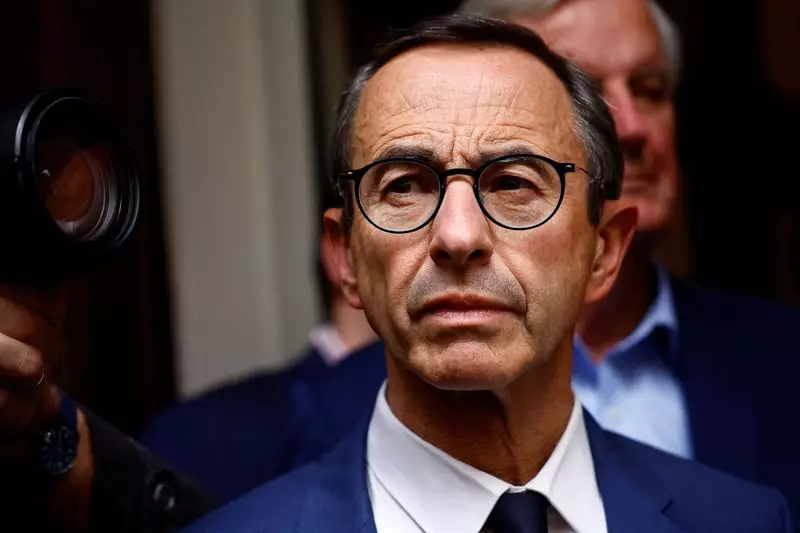As political landscapes evolve, the appointment of new ministers can signal a shift in governmental strategy and priorities. French President Emmanuel Macron’s recent cabinet reshuffle under Prime Minister Michel Barnier is emblematic of this continuous adaptation. The cabinet reflects a blend of experience, political ideologies, and fresh perspectives aimed at addressing persistent challenges facing France.
One of the most notable appointments is that of Antoine Armand as the Minister of Finance. At just 33 years old, Armand signifies a wave of youthful leadership—a departure from the more seasoned figures typically occupying such pivotal roles. His recent experiences—first as a Member of Parliament in 2022, followed by an expected leadership in the economic committee—position him as a capable advocate for economic policies designed to navigate France’s financial challenges. Having been directly involved in France’s elite corps of finance inspectors, Armand’s academic foundation from the Ecole Nationale d’Administration lends him credibility. Yet, the real test will be his ability to manage the complexities of budget deficits, as he strives to balance fiscal responsibility with the economic expectations of the populace amid rising discontent over potential austerity measures.
Bruno Retailleau’s elevation to the position of Interior Minister presents a striking contrast to Armand’s appointment. Retailleau, a long-serving conservative senator known for his hard-right views, embodies the growing conservative influence within Barnier’s government. His longstanding criticism of Macron’s policies—particularly regarding immigration and law enforcement—reflects a broader trend of political polarization in France. Retailleau’s call for stringent immigration reforms and a tougher approach to dissent and protest signals a willingness to embrace a more hardline governmental stance. This could potentially alienate segments of the electorate who favor more liberal approaches to social issues, particularly as France navigates the intricate balance between maintaining public order and protecting civil liberties.
Jean-Noel Barrot’s promotion to Foreign Minister illustrates Macron’s commitment to continuity amidst ongoing geopolitical tensions. Coming from a prominent political lineage, Barrot not only brings familial political experience but also a robust understanding of European dynamics. His previous role as Minister for European Affairs underscores the government’s intent to bolster its presence in EU matters. Furthermore, Barrot’s centrist affiliations and links with Francois Bayrou’s MoDem party are vital for maintaining coalition stability. The importance of this balance cannot be understated, particularly as France seeks to navigate complex foreign relations, especially in the climate of unrest resulting from Russia’s actions in Ukraine.
Another key player in Macron’s cabinet is Benjamin Haddad, appointed as Minister for Europe. His previous engagements in English-speaking environments, coupled with his diplomatic efforts regarding Ukraine, position him as a significant asset in shaping France’s external policies. Haddad’s proactive approach—urging lawmakers to mobilize support for Ukraine—serves to enhance France’s role on the international stage. Such appointments highlight the administration’s strategic focus on maintaining strong transatlantic relationships, essential for addressing contemporary crises and fostering collaboration within Europe.
Sébastien Lecornu’s retention as Defence Minister signifies a strategic choice aimed at preserving stability within defense policies. As a loyalist to Macron, Lecornu’s experience and low-profile demeanor suggest a pragmatic approach to a sector that is increasingly volatile amidst global security threats. His previous background within the conservative ranks sets a foundation for navigating national defense issues, ensuring France remains prepared to respond to both internal and external challenges.
Emmanuel Macron’s latest cabinet is a testament to the evolving nature of French politics, where youthful idealism meets seasoned conservatism. The juxtaposition of these appointments reflects an intricate dance between continuity and change, between hardline policies and diplomatic pragmatism. Each minister brings a unique set of skills and ideologies that can potentially reshape the governance of France, as the new cabinet tackles pressing issues like economic stability, security, and foreign relations in an increasingly complex global landscape. The challenge lies in finding a harmonious balance amid stark ideological differences while effectively addressing the concerns of a diverse electorate.

